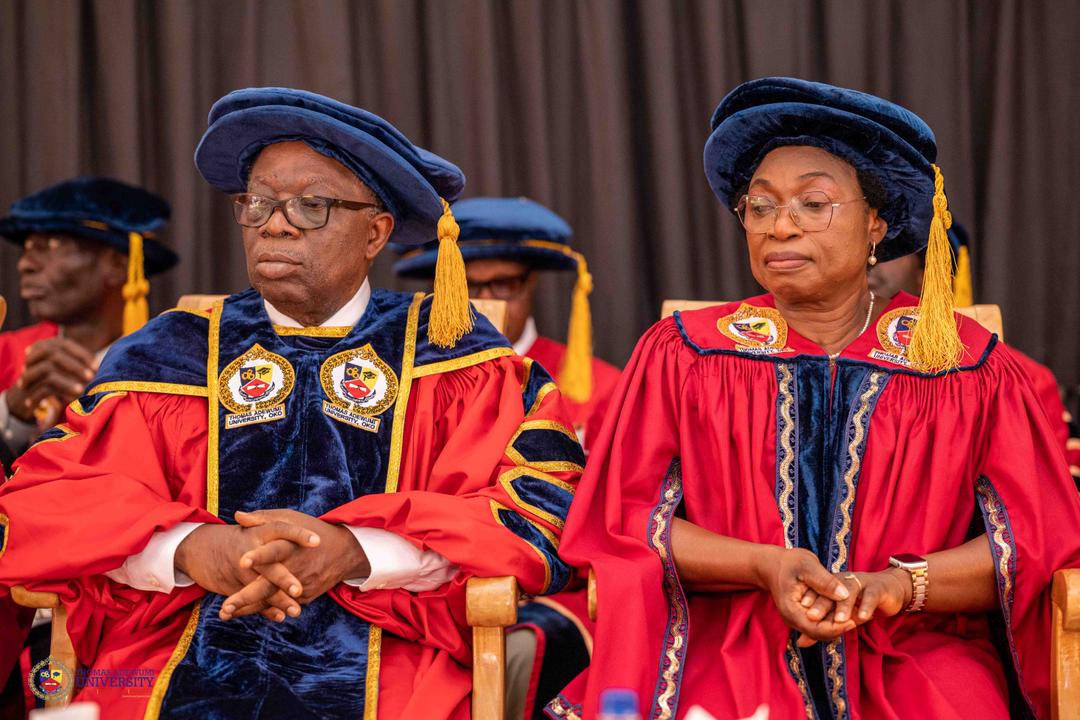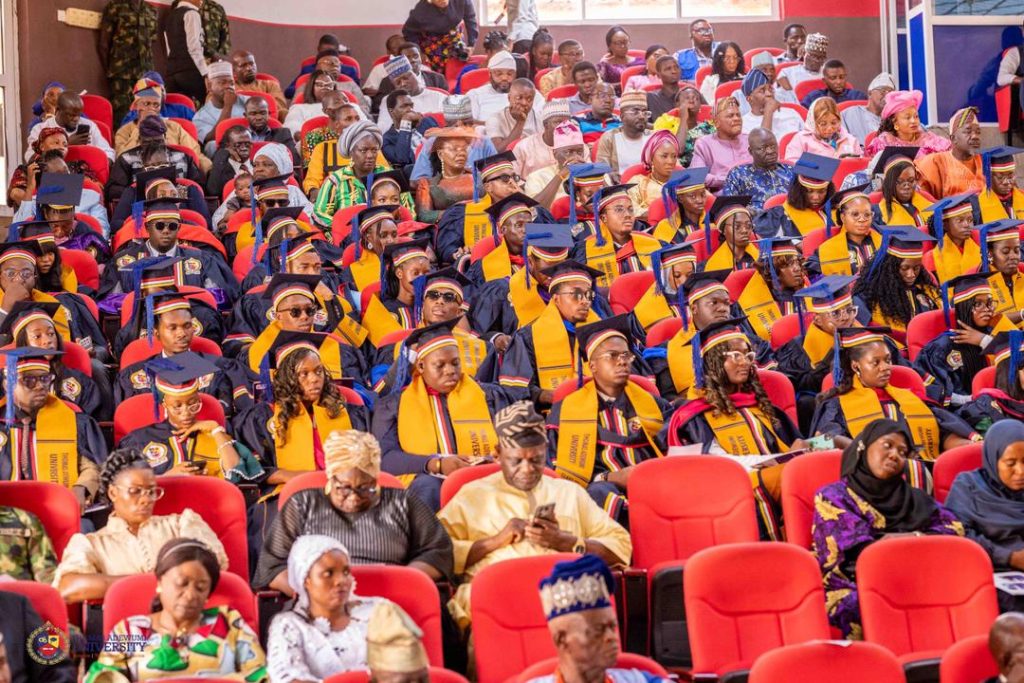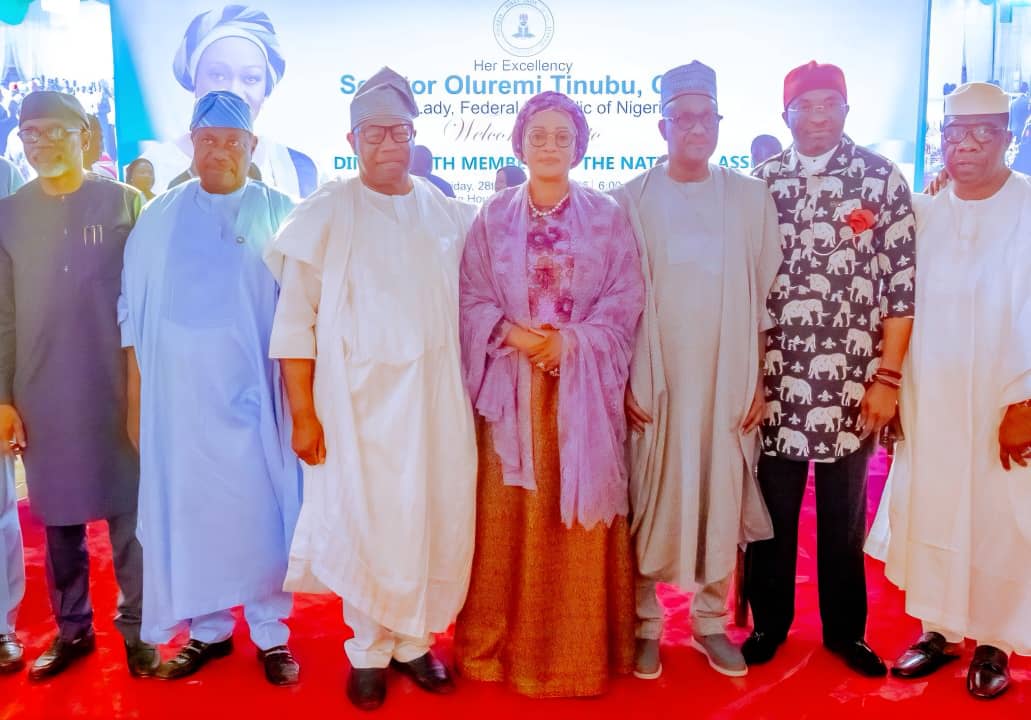Uncategorized
5 CSOs reject Coastal Guards Bill as Anti-Nigerian Legislation
* Say Proliferation of Armed Forces will escalate security issues in Nigeria

Five civil society organizations in the country have strongly rejected the Nigerian Coast Guard Bill currently before the National Assembly as anti-Nigerian.
The Coalition in Support of National Security Advancement (CSNSA) at a world press conference held in Abuja said the bill is an attempt to amend the constitution through the backdoor by creating another arm of the Armed Forces.
The groups raised concerns over national security, economic implications and constitutional conflicts.
In a joint address by Okwa Dan and Bilal Abdulahi, the coalition also highlighted the economic burden of establishing a Coast Guard which would require significant funding, potentially diverting resources from the Nigerian Navy.
Furthermore, the CSNSA emphasized constitutional issues, noteworthy to state that the proposed Coast Guard contradicts Section 217 of the Nigerian Constitution, which recognizes only the Army, Navy, and Air Force as branches of the Armed Forces.
Instead, the CSNSA proposed strengthening the Nigerian Navy and establishing a civilian-controlled maritime agency to handle non-military duties.
While urging the National Assembly to discard the bill, the groups said the legislation was not in the best interest of citizens hence the sponsors must apologise.
“We call upon President Bola Ahmed Tinubu and the National Assembly leadership to carefully consider the demands of our country’s present security, economic realities, and constitutional obligations. Several important issues have been brought to light by our thorough analysis of the Coast Guard Bill as well as observations from regional and global perspectives,” the statement said.
“However, the Nigerian Navy’s function and responsibility overlap is one of the main problems. It is noteworthy to start that, International acclaim has been given to the Nigerian Navy for its successful management of marine security, which includes law enforcement, counter-piracy, and hydrographic services.
“Moreover, establishing a new Coast Guard can lead to potential jurisdictional conflicts and operational inefficiencies; examples from the US, UK, and South Africa show how different duties might prevent such overlaps. Nigeria’s unique resources and structure, however, don’t seem well adapted to implementing this distinct strategy exemplified by these countries, considering Nigeria’s present effort in stabilizing the economy.
“The proposed Coast Guard Bill has been observed to bring up issues of command organization and constitutionality. The Nigerian Constitution’s Section 217 recognizes only the Army, Navy, and Air Force as branches of the Armed Forces.
“Thus, creating a second military duty would necessitate constitutional amendments, and could create legal ambiguities. Unity of command is essential during emergencies, and military service under a civilian ministry may make this more difficult.
“Furthermore, we discovered that the costly burden of building a Coast Guard is exacerbated by Nigeria’s economic constraints. To put it in perspective, the U.S. Coast Guard spends more than $13 billion a year. It seems like a more effective and long-term option would be to use these funds to bolster the Nigerian Navy.
“Additionally, the Coalition in Support of National Security and Advancement believes that the proposed Coast Guard under the Ministry of Marine and Blue Economy would create a complex administrative structure that could lead to inefficiencies.
“Specific security requirements that might not fit into a single framework are being addressed by each agency, and thus operational inefficiencies may also result from the Coast Guard’s administrative complexity when placed under the Ministry of Marine and Blue Economy.
“Under the Ministry of Defense, military services typically need a rigid chain of command. A civilian-led command structure for a military service could result in contradictory orders, compromising Nigeria’s ability to respond timely to security threats. Rather than strengthening security, the Coast Guard, as proposed, may exacerbate threats.
“Given these worries, we humbly request that President Bola Ahmed Tinubu and the National Assembly consider increasing the support to the Nigerian Navy as a step which would be a practical way to improve maritime security without adding more red tape.
“Secondly, Nigeria would be able to handle non-military duties more effectively, openly, and responsibly if civilian control for non-military maritime functions were given priority. For a better replacement for establishing a Military Coast Guard, Nigeria might set up a civilian-run organization to manage tasks like environmental protection, customs enforcement, and search and rescue.
“In addition to avoiding duplication of Navy operations, this strategy would be in line with global best practices. Finally, it is crucial to adhere to constitutional limits by making sure that any reorganization of Nigeria’s maritime security does not conflict with the 1999 Constitution.“
Uncategorized
TAU reaffirms commitment to globally competitive learning

- As 16 graduands make First Class
Stephen Olufemi Oni, Ilorin
The Thomas Adewumi University (TAU), Oko-Irese, in the Irepodun local government area of Kwara State, has reaffirmed its commitment to strengthening quality education, innovation, and globally competitive learning.

Speaking at the institution’s 2nd Convocation ceremony in Oko-Irese, the Vice Chancellor of the University, Professor Francisca Onaolapo Oladipo, said TAU is living up to its ranking as the fastest growing institution in Science, Technology, Engineering, Medicine, and Innovation (STEM-i) ecosystem by surpassing more than 100 percent in its number of graduating students at the second convocation.
She said: “TAU emerged on April 8, 2021, as Nigeria’s fastest-growing Science, Technology, Engineering, Medicine and Innovations (STEM-i) ecosystem. Today, we rank 1st among the 20 private universities that were licensed in
2021, 4th among the 14 Universities in Kwara State, 5th among Nigeria’s over 170 private Universities and 50th nationally, an impressive rise reflecting our unwavering commitment to excellence.
”What a Moment of Extraordinary Significance today, we stand at a crossroads far more significant than words can adequately capture. Exactly one year ago, we gathered at this very Auditorium to celebrate our inaugural Convocation, a ceremony that marked the graduation of 26 pioneering students who dared to believe in a vision when others saw only impossibility. Those 26 trailblazers proved that Thomas Adewumi University was not just a dream, but a reality rooted in excellence. Today, as we honour 63 outstanding graduates, we witness something far more profound than numerical growth.
“This 142% increase in our graduating class is not merely a statistic to be recorded in annual reports, it is a declaration that Thomas Adewumi University has transcended the realm of promise and entered the domain of proof.
“We have moved from potential to performance, from aspiration to achievement, from vision to velocity.
This year, 63 graduands from 4 Faculties and 11 academic programmes are being conferred. It is noteworthy that we have 16 First Class graduates, 40 in Second Class Upper Division, and 7 in Second Class Lower Division. These results reflect the quality of training and mentorship provided at Thomas Adewumi University, and we are proud to contribute these innovators to both the Nigerian and global workforce, confident that they will make a meaningful
impact.
”Preparing Globally Competitive Graduates, these 63 graduands are not merely degree holders, they are comprehensively prepared global professionals equipped with exceptional advantages that set them apart from their peers nationwide. Through our international partnerships, these graduates have obtained additional microcredentials from MIT, Harvard, Stanford, Columbia, Berkeley, and Yale, world-class certifications from Alison, UK, RUDN professional University, Russia, World Bank’s Saylor Academy, Google, ICAN, and the Global Partnership for Sustainable Development initiatives in Data Science and Artificial Intelligence.
“Our Coursera collaboration provided them with additional industry certifications, while partnerships with Microsoft, IBM SkillsBuild, and MIT OpenCourseWare through our Global Campus initiative democratize access to cutting-edge knowledge. They are thus fully equipped to embark on meaningful and innovative careers in today’s technology-driven world.”
Earlier in his Convocation Lecture, titled “Crowdfunding Opportunities forstartups: Equiping Nigerian graduates for a sustainable future”, Dr. Bayo Williams Olugbemi charged the graduads on the mindset of job creation, saying “as a graduate, your future is not defined by what Nigeria gives you, but by what you create. The idea of crowdfunding is the idea of hope. It is proof that when people come together, ideas once impossible become achievable.
“I urge you not to think only about searching for jobs. Instead, think about creating value, and if capital is a barrier, remember: “The crowd can be your first investor.”
In his goodwill message, the Executive Secretary of the National University Commission, Professor Abdullahi Ribadu, represented by Esther I. Eyo, Esq commended the resilience of TAU management said “NUC acknowledges TAU sustained progress in advancing quality teaching, impactful research, innovation, and community engagement, all of which align with our national aspiration for a globally competitive and knowledge-driven university system.
“It would interest you to know that, in the accreditation exercise conducted in 2023, Thomas Adewumi University achieved a 100% Full Accreditation status across all programmes assessed a laudable feat that reflects the University’s strong commitment to maintaining high academic standards.”
Also speaking, the Founder/Chancellor of the institution, Dr. (Engr) Johnson Adewumi, urged the graduands to be good ambassadors of the University, adding: “Remember that your degree is not an end but a beginning, go forth with courage, humility, and a sense of responsibility. Strive to illuminate whatever space you occupy with the light of integrity, excellence and service.”
Highlight of the event was the conferment of an honorary doctorate degree on two distinguished personalities; Engr Oluseyi Afolabi and Pastor Oladokun Olatunde.
End
Uncategorized
photo

L-r Speaker, House of Representatives, Tajudeen Abbas; President of the Senate, Godswill Akpabio and Nigeria’s First Lady, Senator Oluremi Tinubu, during the dinner for members of the National Assembly by the First Lady yesterday. Photo: Senate President’s Office.
Uncategorized
JUST IN: Even Tinubu moves with too many police escorts – Senator Ndume

By Hassan Taiye
Senator Ali Ndume has criticised what he described as the excessive use of security convoys by top government officials, including President Bola Tinubu, warning that the practice leaves ordinary citizens exposed and vulnerable.
Speaking on Politics Today on Channels Television on Thursday, Ndume said many public office holders move with security details that are unnecessarily large, even when their positions do not warrant such heavy protection.
He recalled visiting the residence of a colleague and finding “more than 10 policemen” attached to him, despite the lawmaker being junior to him in the National Assembly.
Ndume further argued that the presidential convoy itself is excessively large, stressing that security efforts should be focused on protecting the overall environment rather than individual personalities.
He said: “I went to one of my colleagues’ house for dinner. And I saw more than 10 policemen. He is even my junior in the National Assembly. Some of them, if you see them coming, you will pull back thinking that maybe it’s the President or the Vice President that is coming.
“
You can see even the president, the convoy that the president goes about with is too much. Secure the place and when the president goes, you withdraw. Secure Abuja and the president can even drive out, you know, himself.
But when you secure personalities, and this is what is happening in Nigeria, then others, common people, as we call them, become vulnerable, and we don’t care. So if you secure Abuja, then you can drive at night. And let me tell you, this is what is happening in most countries”.
The lawmaker’s comments come just days after President Tinubu ordered the withdrawal of police officers from VIP escort and guard duties.
In a statement, the Special Adviser to the President on Information and Strategy, Bayo Onanuga, said the directive was aimed at redeploying police manpower to core law enforcement responsibilities.
-

 Uncategorized5 years ago
Uncategorized5 years agoFG, states urged to harness flooding for ranching, others with technology – Agbaje
-

 Headlines10 years ago
Headlines10 years agoBreaking: EFCC seals Borno House of Assembly, as Hon members take to their heels
-

 News11 years ago
News11 years agoNigeria Security Operatives Stage Manhunt For Homosexual Perpetrator
-

 News9 years ago
News9 years agoHow 21-year-old Girl fled community over accusation of lesbianism
-

 News10 years ago
News10 years agoYobe Gov Moves Against Deputy
-

 Opinion7 years ago
Opinion7 years ago7 signs she has friend zoned you
-
Technology4 years ago
Online job placement company headhunts women
-

 Headlines10 years ago
Headlines10 years agoBorno Dep Gov Abducts Another Church Leader





